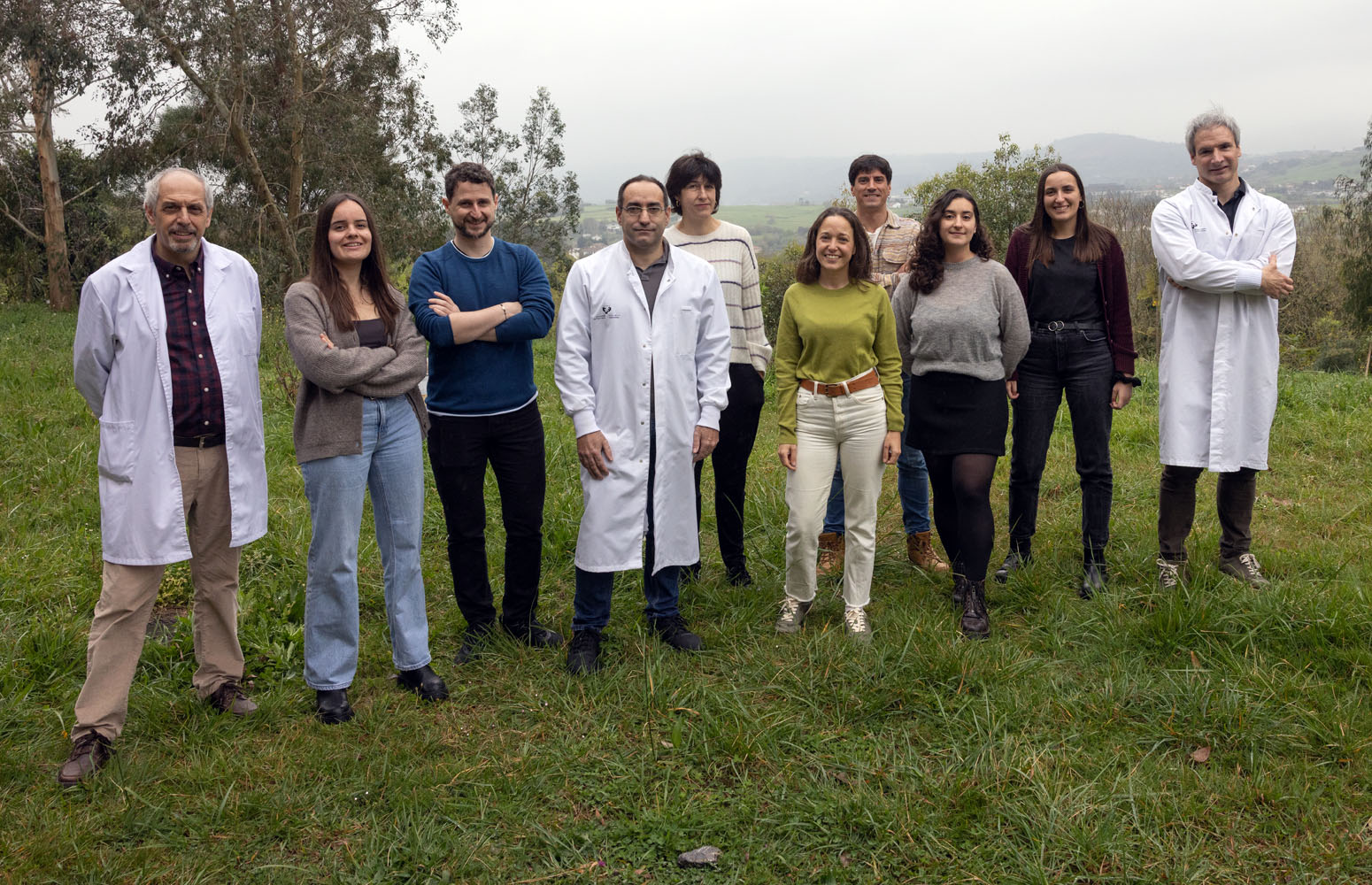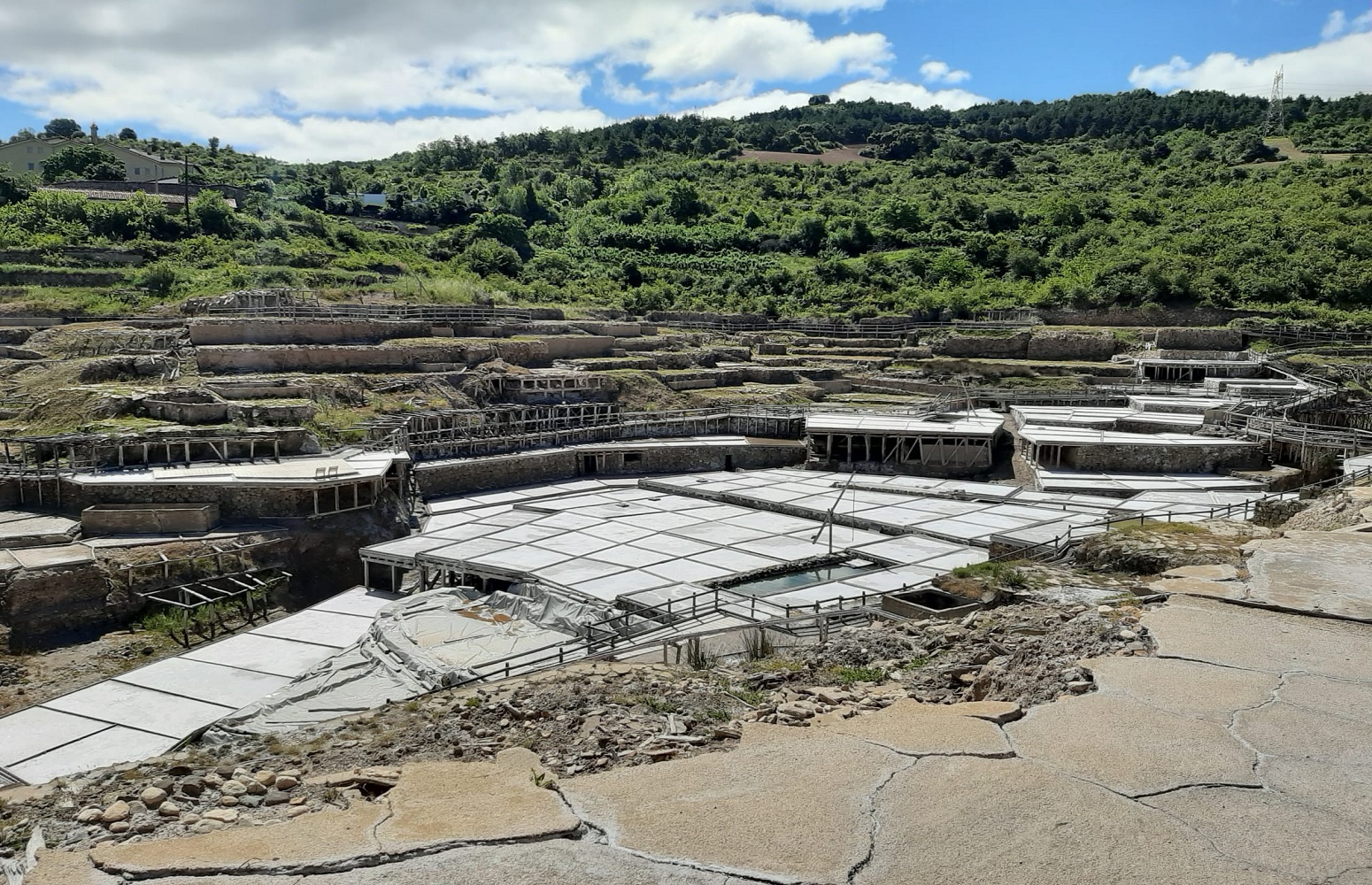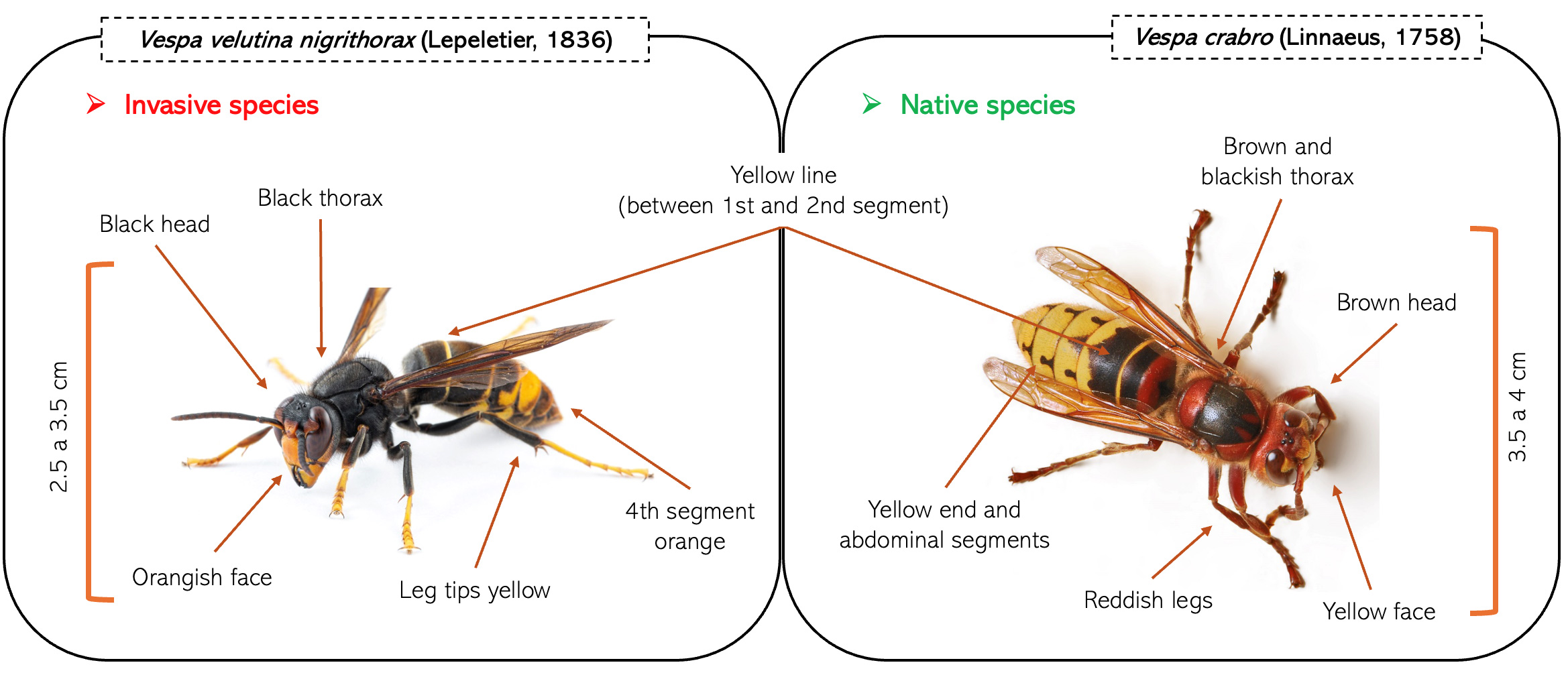The FARMARTEM research group has found the keys to solving one of the main problems in the fight against the Asian hornet: the limited time the baits can be used. This work established that when stored under cold conditions and in the presence of CO2, the efficacy of biocide-spiked protein baits does not diminish, thus guaranteeing an effective use of this control method, and providing a key tool for production companies and the beekeepers themselves.
-

Cells very similar to neurons obtained from human dental stem cells
-

The brain resorts to myelin when other brain nutrients are depleted
-

System for calculating the impacts of emissions by large European industrial plants is published
-

Most goals in football result from first touch shots
-

Añana Saltern microorganisms help to clarify the groundwater flow pattern
The useful service life of Asian hornet baits is extended if stored cold and with CO2
A study by the University of the Basque Country (UPV/EHU) has managed to optimise the conservation of these baits and extend their useful service life in order to boost the control of this invasive species
- Research
First publication date: 05/12/2024

The invasive species Vespa velutina nigrithorax, commonly known as the Asian hornet, reached the Basque Country in 2010 and has since been causing damage in terms of the environment and human health, as well as major economic losses in sectors such as agriculture and apiculture. The latter sector is one of the most damaged, as this species is a predator of insects, especially honey bees. Asian hornets need protein to feed the larvae in their nests, and a high percentage of this protein is taken from bees, which are easy prey for the hornets.
So the development of tools to control them is of prime interest. They include “protein baits spiked with biocide that have proven to be an effective, economical and simple method. That way, the hornets take the protein the larvae need to develop to the nest, and the biocide that is incorporated in it kills the larvae, and as a result, the nest ceases to develop”, said Rosa María Alonso, leader of the FARMARTEM research group.
However, “given its composition”, Alonso went on, “the protein substances used as traps have a limited useful service life. The oxidation of their components, enzymatic activity and micro-organisms lead to the formation of spoilage compounds”. These are responsible for changes in colour and texture, and for the emergence of unpleasant odours, prompting the hornets to reject the bait. The UPV/EHU’s FARMARTEM research group carried out a study establishing the optimum conditions for storing and preserving these baits so that they do not lose their effectiveness. The team therefore analysed the stability of the baits under various storage conditions: at room temperature, in the refrigerator and in the freezer.
With the help of cold and CO2
The results of the study establish that “the protein baits preserved for one month under frozen conditions maintain their properties and do not deteriorate”. In addition, “preparations using moisture-reducing ingredients and stored inside heat-sealed bags containing CO2, which provides a protective atmosphere, were found to be effective for at least 14 days when kept refrigerated. The use of CO2 delays the emergence of compounds, which indicate decay and cause the wasps to reject the baits, and ensures that the trap will last longer,” explained Alonso.
Tests were carried out in beehives with baits kept under various conditions to find out which baits were rejected by the hornets. Based on the results obtained in the tests carried out in the beehives, “we processed the data using various statistical and chemometric tools in order to identify possible rejection markers, optimise the conservation of the baits and prolong their useful service life”, said Rosa María Alonso.
The UPV/EHU’s FARMARTEM research group established the optimal conditions for manufacturing and storing these baits; that way, relevant information was provided for bait companies and the beekeepers themselves who are faced with the challenge of controlling the Asian hornet and protecting their hives.
Additional information
Rosa M. Alonso is a professor in the UPV/EHU's Department of Analytical Chemistry. Since 1991 she has been leading the FARMARTEM research group which aims to develop new analytical methodologies applied to a whole range of fields: pharmaceutics and metabolomics, industry, environment, conservation and the restoration of artistic heritage, and the dating of documents. Alonso is also a lecturer on the Chemistry Degree Course and on the Master's in Forensic Analysis.
Bibliographic reference
- Volatile organic compound profile for the search of rejection markers in protein baits used as Vespa velutina control method
- Microchemical Journal
- DOI: 10.1016/j.microc.2024.111685



